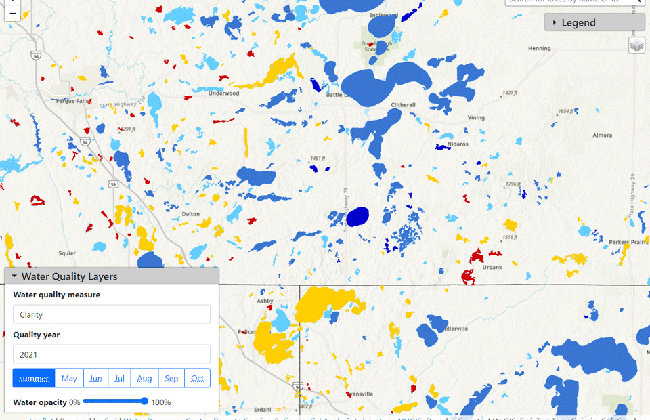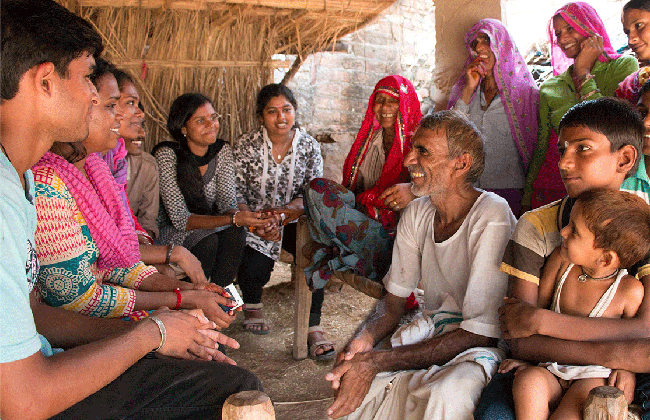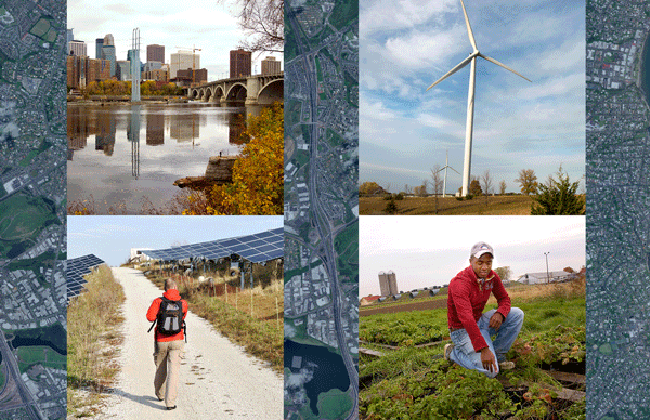Sustainable GeoCommunities Program
A community-based program that is focused on solving local problems facing communities with limited resources.
Led by the University of Minnesota (UMN) and the University of Buffalo (UB) in partnership with Indian Institute of Technology Kanpur (IITK), IIT Bombay (IITB), IIT Delhi (IITD), IIT Goa (IITG), Amrita Vishwa Vidyapeetham (a multicampus Indian university) and others, Sustainable GeoCommunities will help local communities around the world grow and thrive by meeting UN Sustainable Sustainable Development Goals (SDGs).
Support the Sustainable GeoCommunities program with your donation
Local Problems, Global Impacts
The Sustainable GeoCommunities framework is built upon thinking that is local but incorporates a global perspective:
- Principles of geodesign that consider geographic information, culture, demographics, natural resources, and climate in informing the potential solution
- Active community participation to co-develop solutions, shaping and configuring the evolution of local solutions that are sustainable and resilient
- Testing, measuring, and validating the effectiveness of solutions
- Scaling relevant solutions across different regions
- Informing public policy recommendations on the basis of successful interventions


Example Sustainable GeoCommunities Projects
- In a community experiencing water quality problems, residents could test potential drinking water using an ultra-cheap paper-based sensor to display the type and concentration of different contaminants
- Local farming communities could address drought-based food insecurity intensified by climate change with new agricultural practices or engineered seed stock
- Improving connectivity and transportation for a community in order to improve economic opportunities and access to health care
- Providing low-cost refrigeration technology to store food and medical products
- Addressing women and children education in rural communities through access to online tools and solar-powered libraries
Why Donate?
Your contributions will help researchers at the University of Minnesota to connect and work with more communities in Minnesota, around the nation, and in partner countries. Funds will be used to:
- Organize community discussions and workshops to learn about the issues affecting the lives of people and develop partnerships with local organizations. For example, students and researchers spending time in a rural community to first-hand experience the constraints and barriers.
- Fund UMN researchers who stay in a community to quantify the problem and learn about the community’s culture, history, and practical implementation scenarios. Use this understanding to co-develop a solution that can meet the needs of community members.
- Fund relevant applied research to develop appropriate solutions, testing, and validation. Work with county, state, and federal agencies to advance policies based upon the proven solutions.
Support the Sustainable GeoCommunities program with your donation
Program Leadership and Expertise

The University of Minnesota is a leader in community engagement, extension programs, geospatial information technologies and analysis, with strengths in mapping, satellite imaging, data science, and machine learning, geography, and census and demographic information. As the lead institution for the NSF/USDA AI-CLIMATE Institute, UMN is combining knowledge from agriculture and forestry sciences with unique new methods in artificial intelligence (AI), and working to curb the effects of climate change while also lifting rural economies.
Interested UMN scholars should watch for a Sustainable GeoCommunities Request for Proposals for seed grants in early fall 2024 or contact Associate Vice President Kim Kirkpatrick, kimkirk@umn.edu, for more information.
